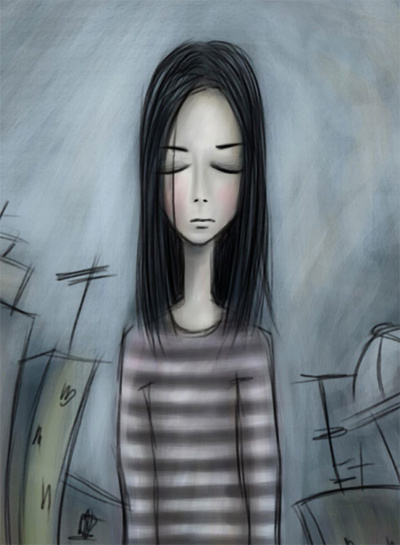“We have nothing to fear but fear itself” – Franklin D Roosevelt
Risk Averse Bias – Importantly, fear also creates a bias in the way we interpret information. It leads us to focus too heavily on the risks, rather than making an objective analysis of all the facts of a situation. We can easily appreciate this in sufferers of Obsessive Compulsive Disorder (OCD). OCD is a disorder where the person becomes fearful of dying, either of unseen microorganisms like bacteria, viruses or germs, or from physical accident, injury or misadventure. People with OCD are not able to make objective analyses of situations and have to be helped, through therapy, to change their association with fear of pathogens. In a work context, in organizations where there is fear, you see groups become risk averse, which is not helpful for growth and development, and sometimes causes the exact result that the executives were afraid of, and trying to avoid.
Problem Solving –It’s also well known that fear disrupts our capacity for problem solving. We become tunnel visioned on our main concern, rather than expanding our thinking to discover and consider a wide range of solutions. In fact, often people tend to oversimplify the problem and the solution to the problem. The solution is often emotional, rather than logical, and does not stand up to scrutiny.
Undermining success – Fear not only impairs our capacity to solve problems and to make good, effective decisions, it also boycotts our chances for success in life. For example, ever heard of the term ‘fear of failure’? Well, we now understand this differently.We now know that often, people that say that they are afraid of failure, when they dig in deeper and explore it, they are also fearful of succeeding. How is that possible? How can anyone be afraid of succeeding? Simple, think of your life right now, as it is. If you were 100% successful and achieved amazing dreams and goals, how many of the people that are around you now, would still like you then? Or would they be envious? For most people, if they were to significantly improve their life, fear would need to take a back seat.
Can you see why fear would not always be useful in a work context?
HINDSIGHT 2020
Today, as a collective, we are experiencing a new kind of fear, which is unique in a sense. This is a fear that is being drummed up, encouraged by governments, some scientists, and the media. Though it may not be the intention, we are reminded to be fearful of others, and fearful for our safety. These reminders to be afraid are conveyed in somewhat subtle ways by the masks we must wear in many places, the visual signs we see alerting us to social distance, the announcements and conversations we hear, and in many other indirect ways. There doesn’t seem to be a reprieve from these (sometimes) subtle, yet constant reminders.
Whether it is warranted or not, is not the question here. The fact remains that we know that fear causes stress, and that long term stress causes an untold number of physical and psychological illnesses.
According to the American Institute of Stress, 120000 people die every year as a direct result of workplace stress. Chronic stress is also linked to the 6 leading causes of death: heart disease, cancer, respiratory deaths, accidents, cirrhosis of the liver and suicide.
The idea that fear causes physical damage is not new knowledge. In fact, there’s a lovely Sufi story that illustrates the harm fear brings:
“A caravan leader in the middle of the desert crossed the plague cloud on his way. – Where are you going like that, asked the chief? – To Baghdad! I have a thousand lives to take, the plague replied without stopping! A few weeks later, the leader of the caravan again crossed the cloud of plague. – ‘Hey!’, said the head of the caravan, ‘I’m back from Baghdad! It was not a thousand but ten thousand people that you took away!’ – ‘I only killed a thousand people as I was ordered’, retorted the plague! ‘The others were scared to death!’”
Being literally scared to death may sound a bit extreme, but it brings us to an interesting phenomenon that was discovered in the 1800’s, called ‘Voodoo Death’.









